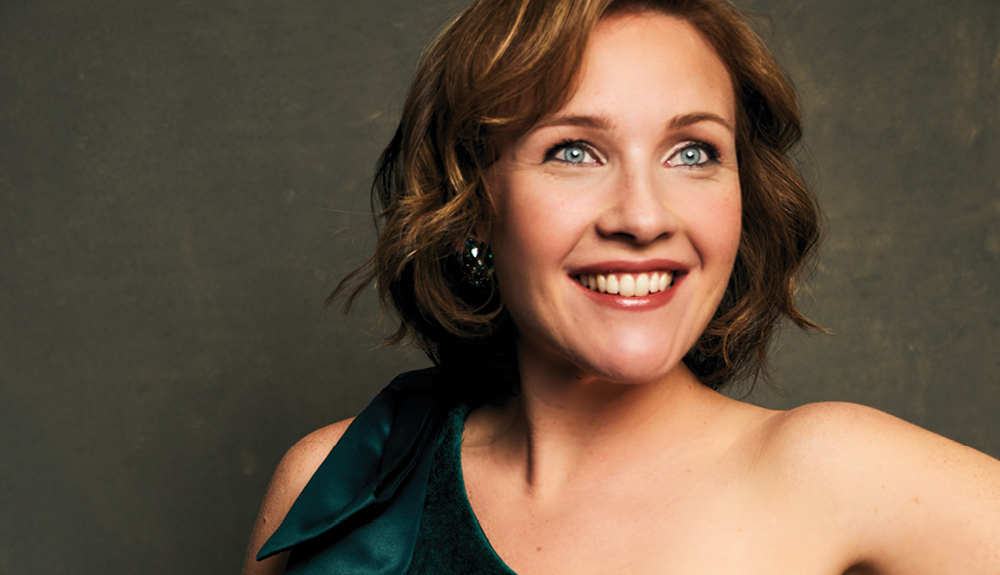
RARE DUALITY IN A NEW SONG CYCLE
At age 75, it was a colossal iron-man achievement.
He conducted his own world premiere song cycle, added on the challenge of less familiar Mahler lieder and led a stirring program from start to finish. This task was approaching a musical version of a triathlon. Before it was out, you half expected him to join the Berlioz brass section, realign the chairs, or go dancing down the aisle in Ravel’s “La valse.”
Yes, this is the outgoing leader Michael Tilson Thomas, who seems no closer to retirement than a freshman senator. He has such an abundance of music in him, it could readily fuel the rest of his first century.
Like a handful of maestros, he is both full-time conductor and part-time composer. And his inventive new opus, “Meditations on Rilke,” breaks new ground in the realm of song cycles, blending century-old poetry with retrospective narration. His verbal reminiscence of his father’s stories leads into an Old West joint, its honky-tonk piano and an old-timer at the keyboard. This leads surprisingly into the six songs he had left to germinate for years—partly autobiography, partly a tribute in German to his icon Mahler and to that other turn-of-the-century Austrian, the mystical poet Rainer Maria Rilke.
A non sequitur or a daring new postmodern juxtaposition? Take your pick! Whichever, it’s unique.
The MTT style and texture here comes closest to his much-admired composer Mahler, given the reflections, the articulation, the solo instruments, sonic color, and surprises—–somewhere between changes of pace and quirkiness. The baritone soloist leads off with thoughts on the ephemeral, in a distant, almost ghostly voice in “August Day,” adding melismas and humming. Then enters the mezzo with a visionary poem questioning the all too mortal poet’s lifetime achievements. Later, in a duet, reflections on a poet’s (or maybe maestro’s) unworthiness upon the final judgment. Rilke’s intense images are wildly dissimilar, ranging from love and faith to loneliness, death and even excrement.
Attractive instrumental solos came from French horn and trumpet. “Again, Again” was introduced elegantly by a pair of cellos.
All in all, this narrative/song cycle nearly 40 minutes in length was a dazzling inspiration touching on memories as well as mortality: Ever mindful, never maudlin. As a further rarity, we had an American composer working in a foreign language. And he adroitly blended his earlier themes into his finale “Autumn” where we, like the leaves, are falling.
Bass-baritone Ryan McKinny was a man of many voices, achieving multiple colors in secure control of his register.
It was very hard to compete with Sasha Cooke, the most illustrious mezzo I’ve heard since the late Lorraine Hunt. She filled the hall with glorious German enunciation, moving into home-base Mahler repertory with four selections from “Des Knaben Wunderhorn,” acting out some of the high emotions. She brought an ineffable sweetness of tone to the restrained yearning for salvation in “Urlicht” (Primal Light), a song recognized from its recycling in the Second Symphony.
When some of these were last heard at the San Francisco Symphony, it was with baritone Thomas Hampson, not a mezzo—a permissible gender shift, with appropriate transposition.
Bookends for the concert heard Jan. 9 were Berlioz’ “Benvenuto Cellini” Overture, where you heard the tread of the Pope, and Ravel’s “La valse,” in which the Viennese waltz goes slightly mad or else increasingly tipsy. Both were orchestral showpieces, played to the hilt by the San Franciscans under MTT who was bursting with energy, right down to the last semiquaver.
San Francisco Symphony, with conductor-composer Michael Tilson Thomas in dual role with world premiere song cycle “Meditations on Rilke,” Jan. 9-12. Davies Hall, San Francisco. For SFS info, call (415) 864-6000 or go online: www.sfsymphony.org.